With the Support of EU Project Pravo-Justice, MoJ Presented a Study on the Development of Mediation in Ukraine
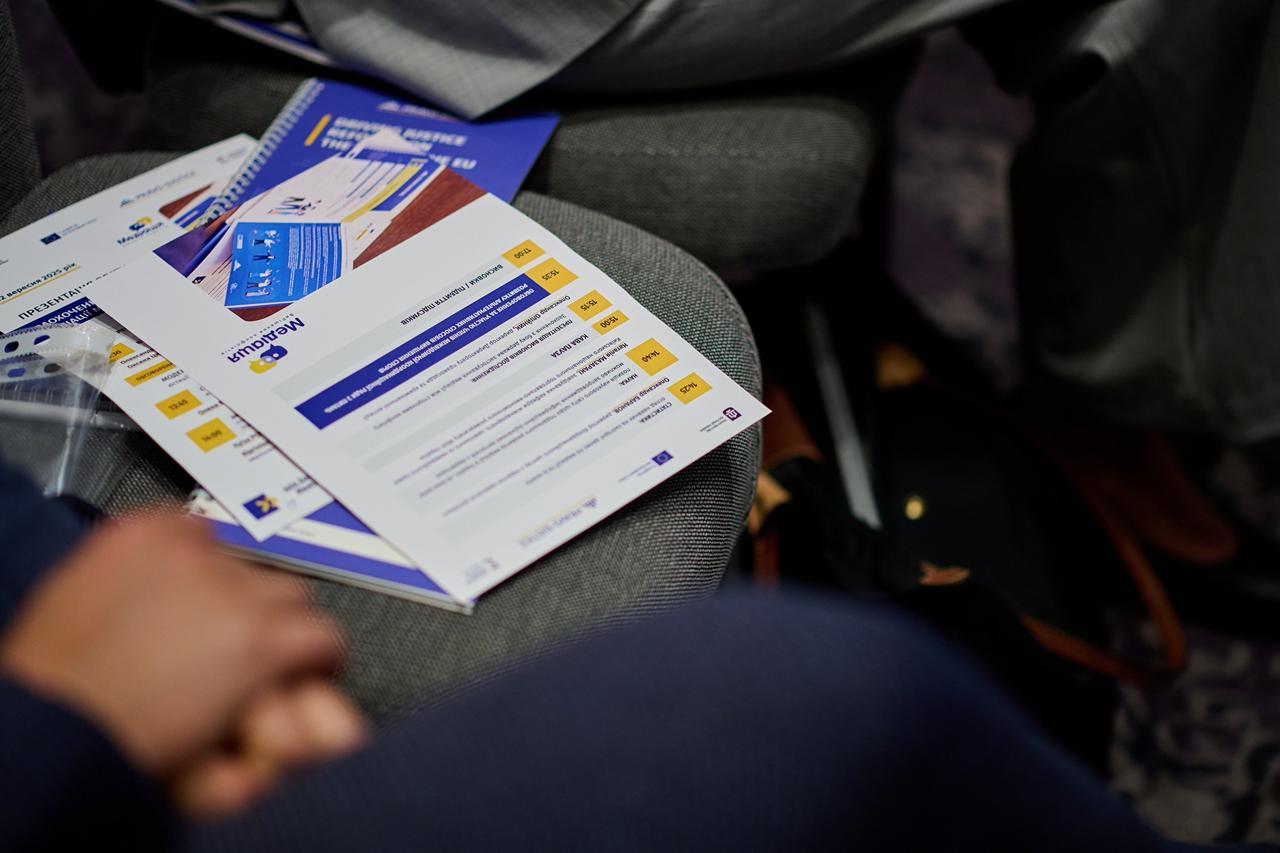
The Ministry of Justice of Ukraine, supported by EU Project Pravo-Justice, presented a study entitled ‘Encouragement by the State of the Use of Mediation Between Parties to a Conflict’. The event brought together the representatives of MoJ, Supreme Court, Office of the President, academia, CSOs alongside international experts and partners.
The participants presented the results of an analysis of judicial practice, statistical data and international experience in the development of mediation, and discussed academic approaches to further development of mediation in Ukraine. Particular attention was paid to the findings of the study on the role of the State in promoting mediation.
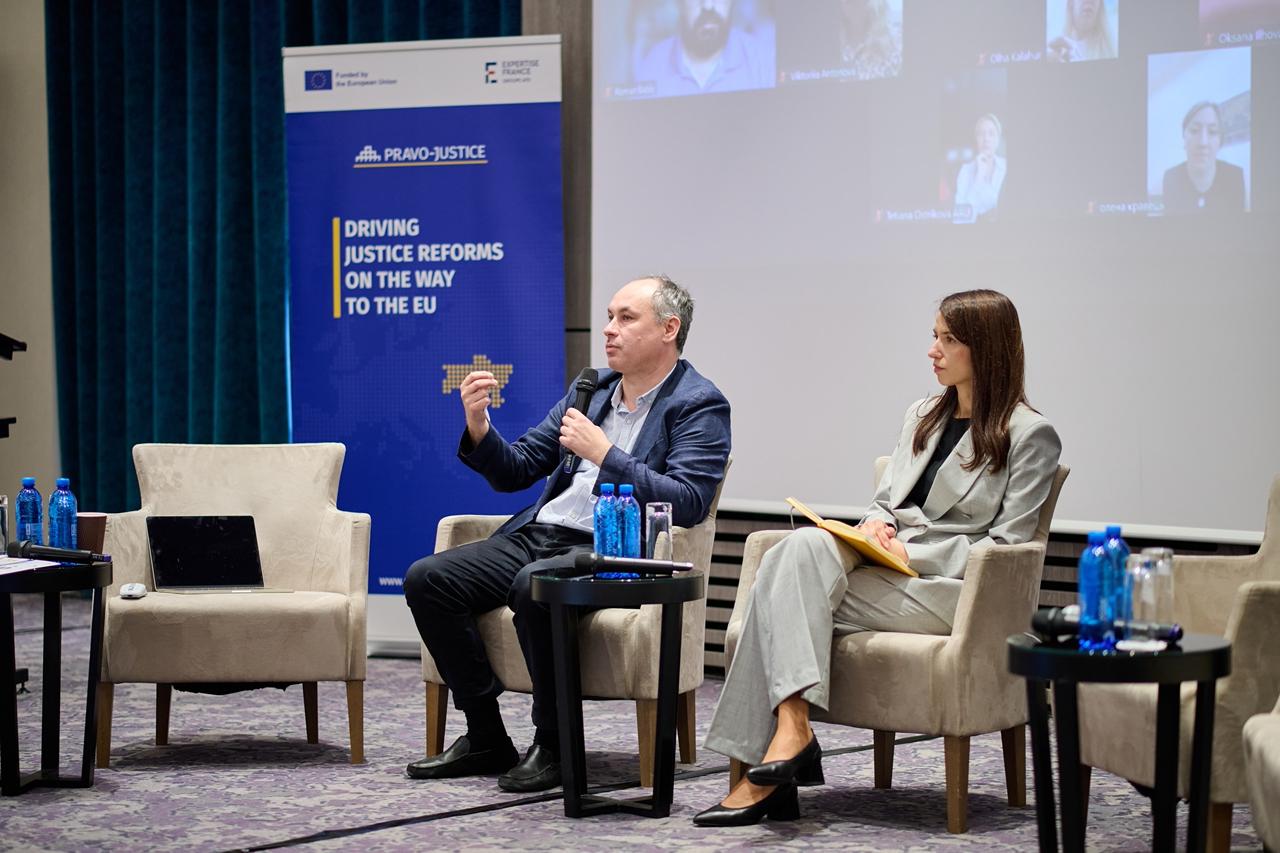
Oleksandr Banchuk emphasised the Ministry’s systematic approach to developing alternative dispute resolution methods, including mediation. He stressed that this work was not only of practical importance for ensuring access to justice, but also an integral part of Ukraine’s European integration, as set out in the Rule of Law Roadmap.
“The development of mediation is Ukraine’s obligation within the process of our country’s European integration. It is one of the actions envisaged by the Rule of Law Roadmap. Without proper development of alternative dispute resolution methods, we cannot expect Ukraine’s full-fledge European integration,” indicated Deputy Minister of Justice.
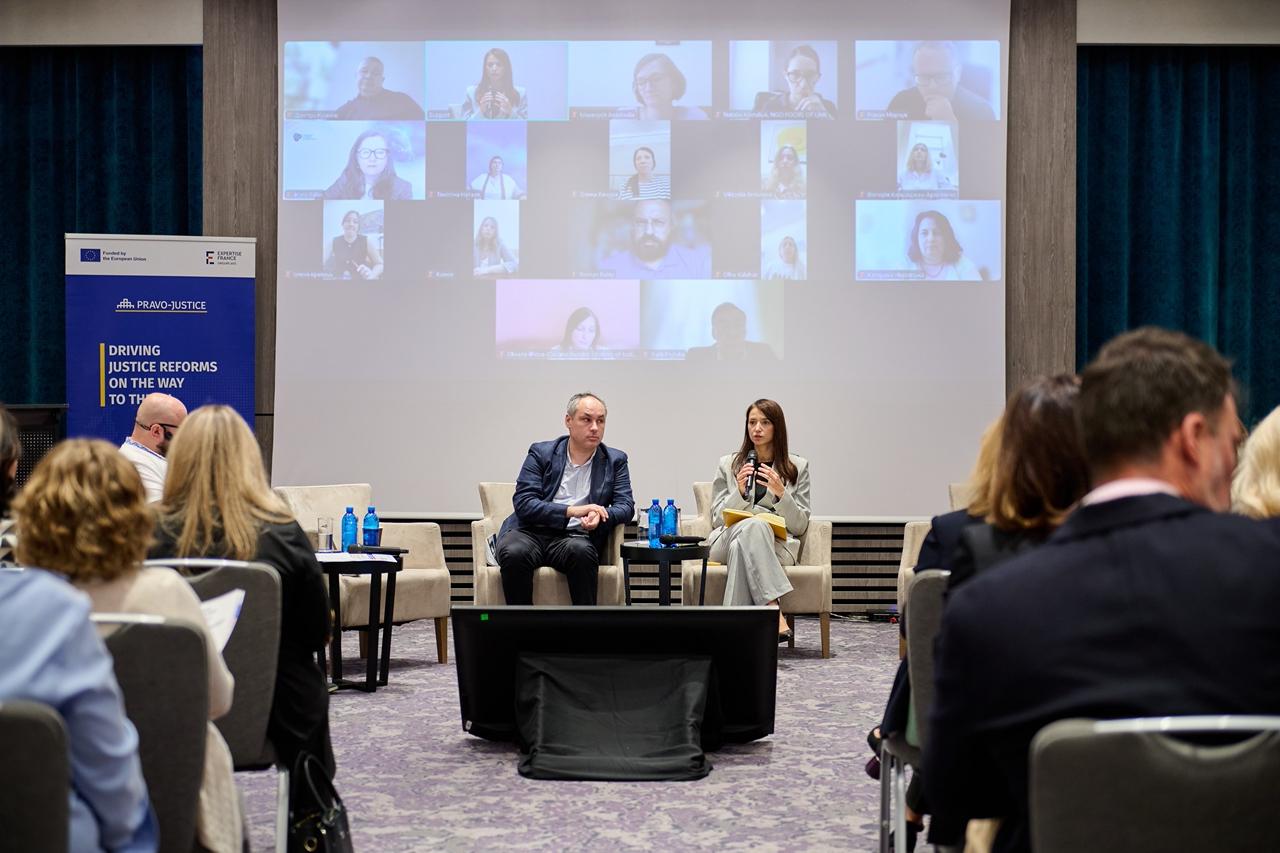
In the meantime, Oksana Tsymbrivska, Team Leader of EU Project Pravo-Justice, said that the presented report would allow for the implementation of measures provided for in the Roadmap, based on clear data and an evidence-based approach. She also emphasised the important role of the recently established Interagency Coordination Council on the Development of Alternative Dispute Resolution in Ukraine, which was intended to become a platform for coordinated work between all stakeholders.
“This is a new platform for coordinated and concerted cooperation between stakeholders, which has been sorely lacking for many years. I am convinced that its activities will contribute to the systematic development and promotion of mediation in Ukraine,” she emphasised, calling for enhanced implementation of mediation.
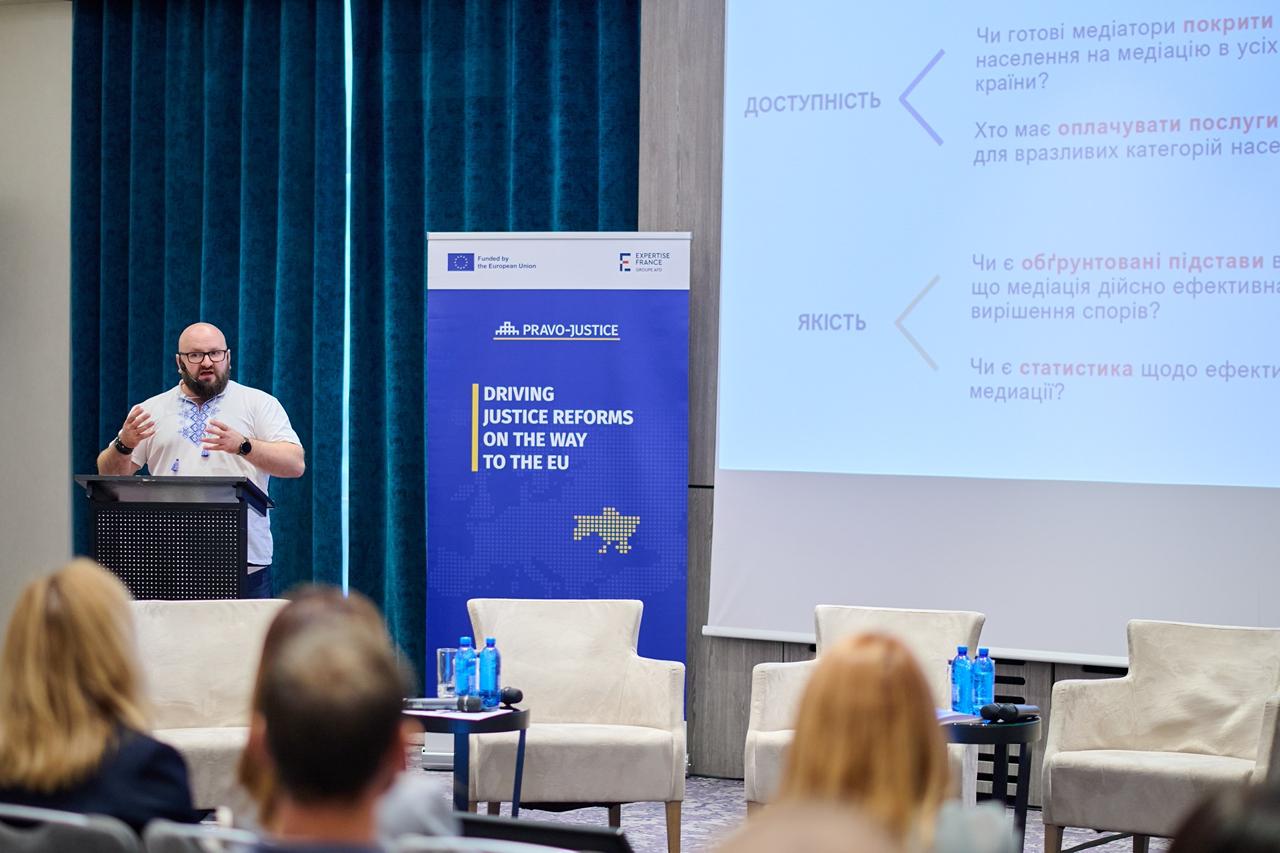
Oleksandr Oliinyk, Director of the Directorate of Justice and Criminal Justice of the Ministry of Justice of Ukraine, presented the results of the study. He spoke, in particular, about the current achievements of the State in that area and possible ways to regulate mediation in Ukraine. He noted that in many countries, mediation was a commercially profitable practice, just like practice of law.
“One of the hidden obstacles to the development of mediation in Ukraine is corruption. It allows people to avoid responsibility, so there is no need to look for other ways to resolve conflicts. Corruption can only be defeated step by step, by building a state governed by the rule of law, that is, by implementing the measures set out in the Rule of Law Roadmap,” said Oleksandr Oliinyk.
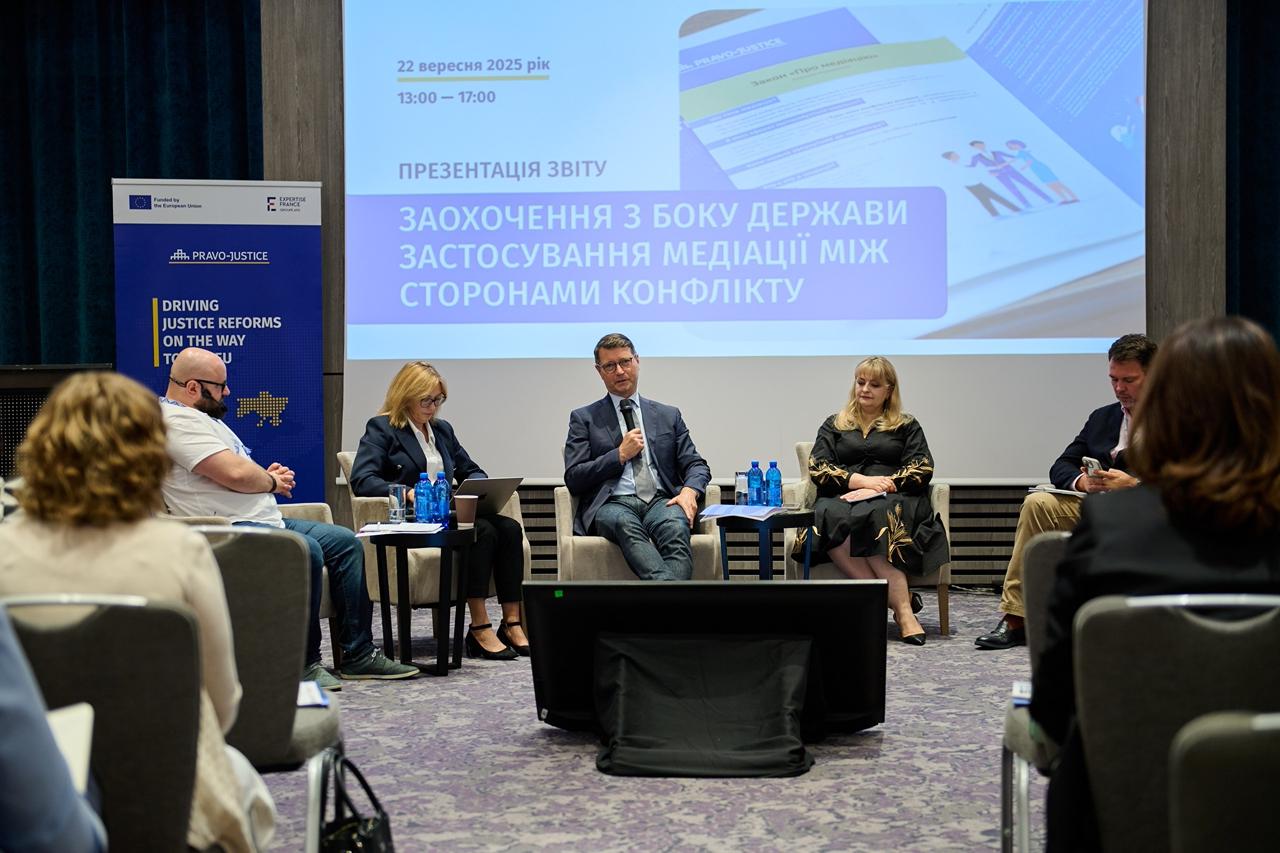
Virgilijus Valancius, Key International Expert at EU Project Pravo-Justice, judge of the European General Court (2016–2023), said that the development of mediation as an alternative dispute resolution means was well established in the EU MS. According to him, the practice of the EU Court of Justice determines its compatibility with European legislation.
"Mediation is a European trend that has proven its effectiveness in many EU member states. Practice shows that when the parties reach an agreement on their own, it often yields better results than any court decision. As a judge with many years of experience, I can confirm that it is exactly the kind of cooperation that deescalates conflict, relieves the burden on the judicial system, and helps to strengthen citizens’ trust in justice,” said Virgilijus Valancius, Key International Expert at EU Project Pravo-Justice and judge of the European General Court (2016–2023).
For her part, Luiza Romanadze, President of the NGO Ukrainian Academy of Mediation, emphasised the importance of taking into account international practices and EU standards in the development of mediation in Ukraine, as well as systemic support for mediation as one of the basic social services in Ukraine.
"We have already got through the stages where international organisations would introduce Ukraine to mediation with mediators being the driving force behind its development. Today, it is impossible to move forward without the State being pro-actively involved. It is the State that is supposed to create conditions for mediation to become more accessible, widespread, and effective. This will not only relieve the burden on the courts, but above all ensure that people have access to justice in a form that is acceptable to them,” she said.
Study ‘Encouragement by the State of the Use of Mediation Between Parties to a Conflict’.